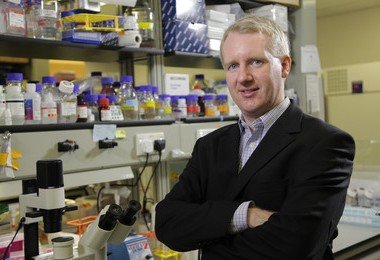KE Spotlight
Filter
-
Knowledge Exchange Awards 2013
The Faculty Knowledge Exchange (KE) Awards were introduced in 2011 in order to recognize each Faculty's outstanding KE accomplishment that has made demonstrable economic, social or cultural impacts to benefit the community, business/industry, or partner organizations. Results of the 2013 Faculty KE Awards are now available.
Read More -

HKU and Universities in USA find face masks can reduce the spread of influenza
There is very little scientific research on whether wearing surgical face masks can help to reduce the spread of influenza. In view of this, the School of Public Health, The University of Hong Kong Li Ka Shing Faculty of Medicine, in collaboration with the University of Maryland and Harvard School of Public Health have conducted a study on this issue and are the first to report that influenza carriers who wear surgical face masks can reduce the amount of viruses being disseminated into the environment by more than 70%, thus reducing the spread of influenza in the community.
Read More -

HKU's collaborative study finds limited efficacy of non-pharmacological treatment for attention deficit hyperactivity disorder (ADHD)
Supplementation with omega-3/omega-6 free fatty acids such as cod liver oil, elimination of artificial food colorings and psychological treatments are often regarded as treatments for children with attention deficit hyperactivity disorder (ADHD). Some parents may prefer non-pharmacological interventions for their children with ADHD. However, a recent research study, with participation by the Department of Pharmacology and Pharmacy of The University of Hong Kong Li Ka Shing Faculty of Medicine and conducted by The European ADHD Guidelines Group, shows that there is still limited evidence on the efficacy of non-pharmacological interventions. Parents should be made aware of the results of the current study. This analysis provides an important reference about ADHD management for clinicians.
Read More

